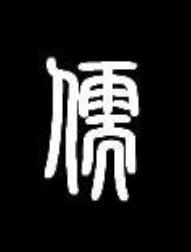
I need to clarify this millennium-old misinterpretation:
中國的先知孔子曾說“民可使由之,不可使知之。”語出《論語》‧《泰伯篇》。在中國的文革“批林批孔”運動中,孔子不但被批倒批臭,而且被判定爲“愚民政策”的鼻祖。其實孔子所說的意思完全相反,這是古漢語不設標點符號而産生的誤讀。
孔子的原意為“民可,使由之;[民]不可,使知之。”兩個標點,差之毫釐,謬之千里!其意是:人民可以做到的,就要使他們自由地去做;人民做不到的,也應該讓他們知道和明白其中的道理。
One of the major tasks of FPC is therefore re-erect the statue of Confucius to the center of our national/spiritual altar, and propagate the orthodox teaching of Confucianism as a key counterpart of modern education. As the world had already had enough and gradually become disenchanted with this hyper-crazed ultra-modernism, high-modernism, and post-modernism, it is rightly as Sam. P. Huntington had postulated that the New World Order is to be a resurgence of an epoch of "New Age" orthodoxy. To wit, it is going to be settled down with fundamental and canonical teachings of Judaism, Christianity, Islam, Buddhism, and Confucianism. Not any single one sect shall overshadow the other, and it is in this light of democratic-republican ethos and the separation of church and state that FPC shall enforce equal-rights among all religious practices.
Nevertheless, as our Great Ancestor and Prophet had foreseen how the Chinese Civilization ought to carry on with her own national integrity and her own idiosyncratic moral code, it is the responsibility of FPC, whose staunch conservative stance has made it to be the most vocal advocate to establish Confucianism as the central canon of Chinese Spirit. However, only this time, more than two millenniums later that it isn’t going to invalidate all other teachings like the resolution drawn during the Han Dynasty in the 2nd Century B.C. , (罷黷百家,獨尊儒術), but simply making a manifestation to our compatriots a true sense of our national identity, which has gotten almost destroyed at the merciless hands of Red Terror.
Here I dedicate another aphorism from the Analects of Confucius to all of those who wish to seek the true sense of Chinese Identity, and thus in turn endow a meaning and essence to our nation:
子曰﹕“興於《詩》﹐立於《禮》﹐成於《樂》。”
polo ralph lauren, prada outlet, oakley vault, christian louboutin shoes, cheap oakley sunglasses, tory burch outlet online, true religion, michael kors outlet, coach outlet, prada handbags, michael kors outlet online, chanel handbags, louis vuitton outlet, tiffany jewelry, gucci handbags, burberry outlet online, kate spade outlet, michael kors outlet online, coach outlet store online, michael kors handbags, oakley sunglasses, louis vuitton outlet online, tiffany and co jewelry, longchamp outlet online, ray ban sunglasses, michael kors outlet store, louis vuitton, nike air max, longchamp outlet, red bottom shoes, true religion outlet, polo ralph lauren outlet, jordan shoes, michael kors outlet online, nike outlet, ray ban outlet, christian louboutin, nike free, nike air max, burberry outlet online, kate spade outlet online, louis vuitton outlet, coach outlet, longchamp handbags, louis vuitton handbags, coach purses, christian louboutin outlet
ReplyDeletebabyliss, new balance outlet, replica watches, vans outlet, mcm handbags, celine handbags, beats headphones, nike trainers, nfl jerseys, giuseppe zanotti, jimmy choo shoes, ugg boots, birkin bag, asics shoes, canada goose outlet, ferragamo shoes, insanity workout, nike huarache, chi flat iron, hollister, abercrombie and fitch, uggs outlet, north face jackets, north face jackets, mac cosmetics, soccer jerseys, canada goose outlet, uggs outlet, uggs on sale, bottega veneta, instyler ionic styler, ugg boots clearance, nike roshe, valentino shoes, lululemon outlet, ugg, marc jacobs outlet, ugg outlet, longchamp, ghd, reebok shoes, ugg soldes, p90x workout, soccer shoes, wedding dresses, mont blanc pens, herve leger, canada goose outlet, canada goose
ReplyDeleteugg, gucci, canada goose, iphone 6 case, hollister canada, vans, canada goose, swarovski uk, pandora jewelry, air max, ray ban, pandora charms, moncler, timberland shoes, moncler outlet, moncler, canada goose, replica watches, louis vuitton canada, uggs canada, coach outlet, juicy couture outlet, converse shoes, thomas sabo uk, nike air max, juicy couture outlet, ralph lauren, hollister clothing, moncler, hollister, supra shoes, louboutin, toms outlet, oakley, canada goose pas cher, parajumpers outlet, moncler, wedding dress, baseball bats, converse, swarovski jewelry, links of london uk, lancel, moncler outlet, pandora uk, karen millen, moncler, montre femme
ReplyDelete